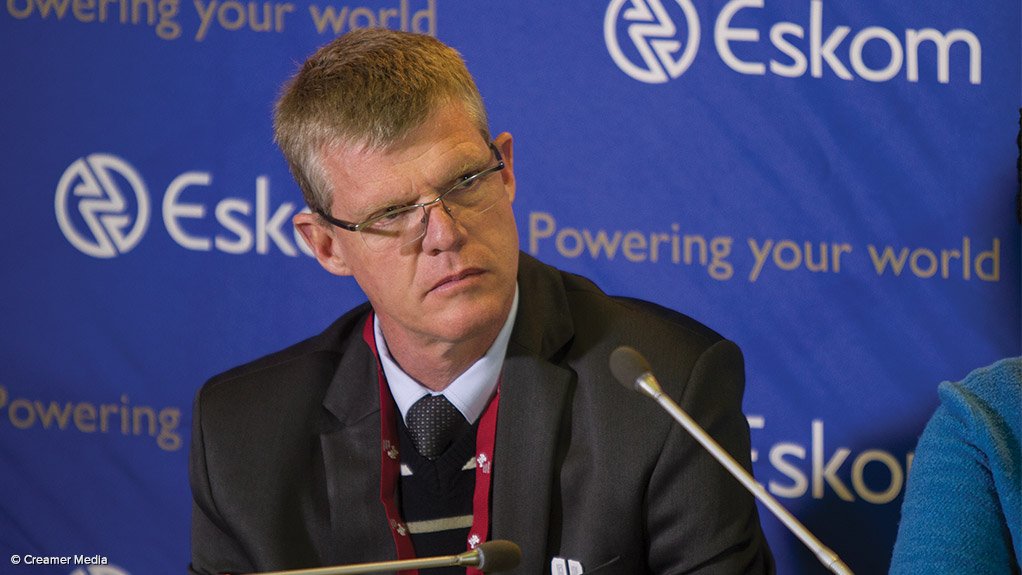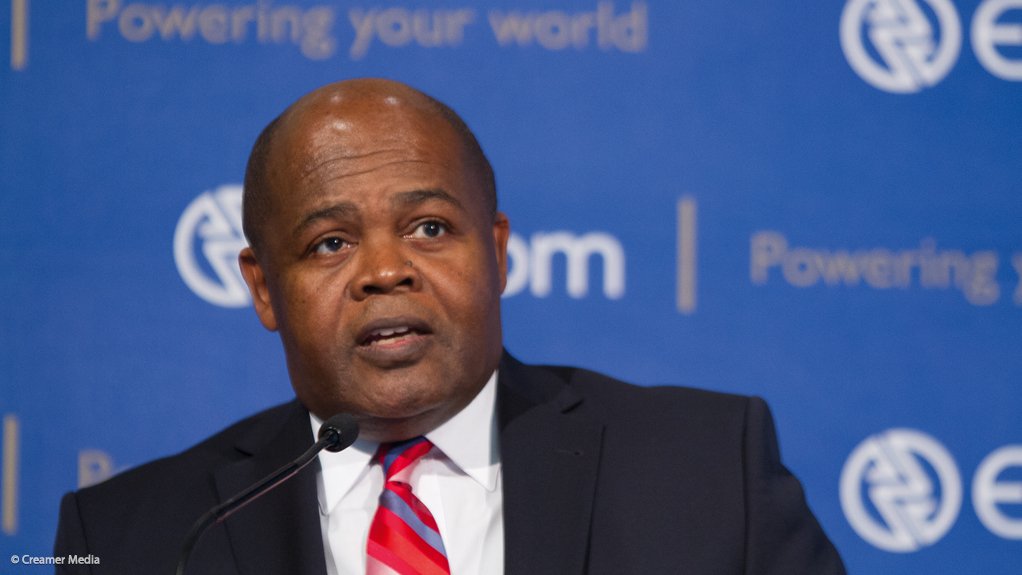The board at embattled State-owned electricity utility Eskom announced on Friday that Sean Maritz had been appointed interim CEO, replacing Johnny Dladla, who himself only took up the position in June, when the previous acting CEO, Matshela Koko, was placed on leave.
In a statement headlined, ‘Rotation in Eskom’s interim Group Chief Executive role’, the board said it had decided to “rotate current executives in this role to ensure exposure”.
Hitherto, Maritz was Eskom’s CIO and group executive for information technology.
Dladla would resume his role as CEO of Eskom Rotek Industries.
“In an effort to embed organisational stability, it is imperative that the role of Eskom’s Group Chief Executive be permanently filled. The recruitment process will begin in due course,” the Eskom board said in a statement.
Earlier in the week, Public Enterprises Minister Lynne Brown announced that she would convene a special general meeting in November to appoint a permanent board at Eskom.
"The advertising process for new board members of State-owned Companies closed on 8 September 2017, and candidates are currently undergoing a vetting process."
Brown said that among the new board's first mandate would be the appointment of a permanent CEO.
"In the meantime, I have asked Mr Zethemba Khoza to ensure that all internal disciplinary procedures relating to allegations of wrongful conduct at the utility are concluded prior to the special general meeting."
Besides allegations of a serious conflict of interest involving Koko, relating to his stepdaughter’s shareholder in Impulse International, which received Eskom contracts value at around R1-billion from a division overseen by Koko, various other senior managers are facing disciplinary action.
The most high profile executive on suspension is CFO Anoj Singh, who, among others things, is charged with having facilitated illegal payments to consulting group Trillian, which is said to have close ties with the controversial Gutpa family.
Brown said she had been lied to by Eskom about its dealings with Trillian and McKinsey, which she described as “an assault on our democratic system of governance”.
Eskom subsequently announced that it was seeking the cooperation of McKinsey and Trillian with regards to the return of R1-billion and R564-million respectively, which “appears to have been unlawfully paid out in 2016 and 2017”.
Eskom's decision to "rotate" its interim CEO was immediately criticised by the National Union of Mineworkers (NUM), which said it was "highly agitated by the decision", while describing the board's reasoning as "shallow".
"The rotation strategy will weaken the accountability towards stabilisation of Eskom. It will only increase competition amongst directors. It is a bad decision," NUM energy sector coordinator Paris Mashego said in a statement.
EMAIL THIS ARTICLE SAVE THIS ARTICLE ARTICLE ENQUIRY
To subscribe email subscriptions@creamermedia.co.za or click here
To advertise email advertising@creamermedia.co.za or click here













